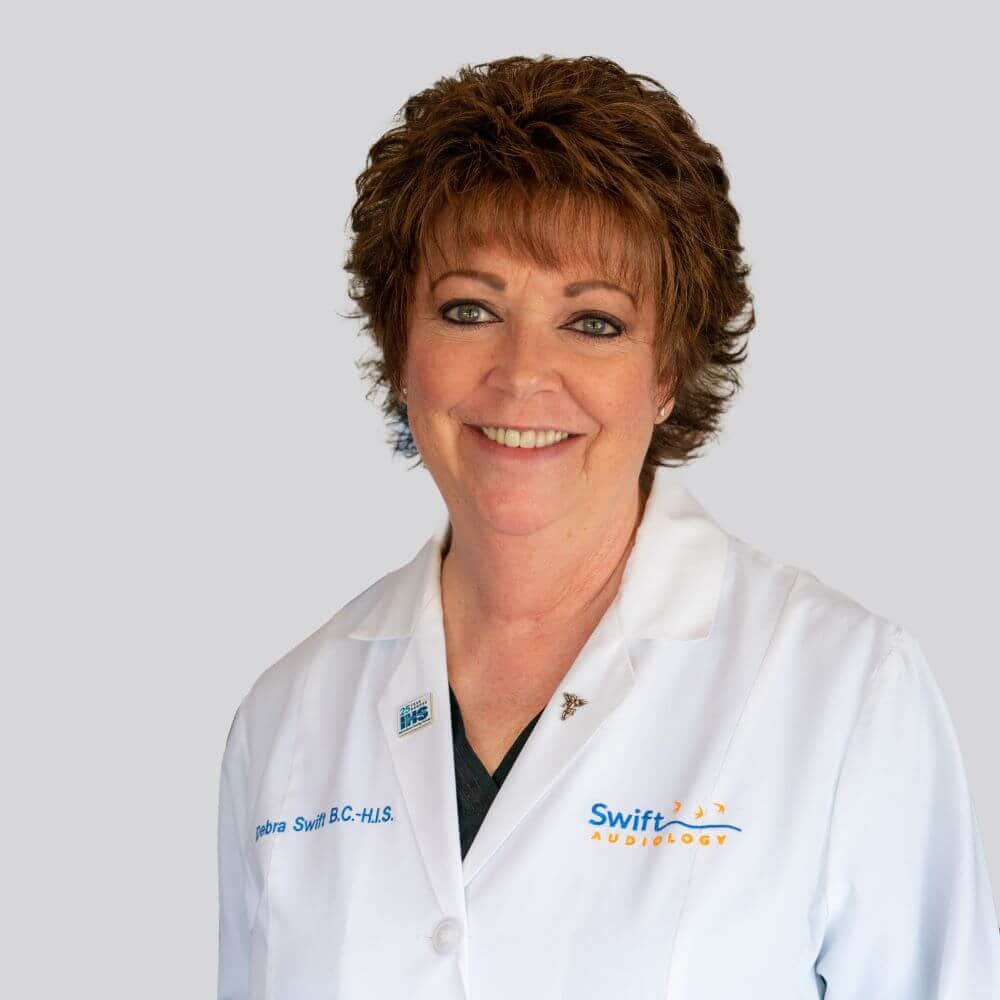Ask the Professionals

Debra Swift, B.C., H.I.S.
3 Offices Serving the Pittsburgh Region
Q: Why do I see so many price ranges advertised for Hearing Aids?
A: We understand that in today’s market—and more than ever before— individuals are flooded with options for amazing medical class, state of the art digital hearing aid technology to help improve the quality of their life. Choice is in the patient’s hands. Our Hearing Healthcare providers help educate our patients on their options by taking into account their needs, lifestyle, budget, and hearing profile. Advertisements make it very confusing to distinguish between OTC (over-the-counter), PSAPS (personal sound amplifiers), and Medical Class Hearing Devices. There are (and always have been) many choices which do not include Professional testing, fitting, or follow-up care.
Through Swift Audiology’s Hearing Aid Test Drive Program, patients can test drive hearing ads in real-time and in real life. “You wouldn’t buy a car without a test drive, so why would you buy a hearing aid without one?” asks Swift.
Are you willing to risk your health to a cheap over-the-counter device? While cheap, so is the benefit to the wearer. Call 412-851-6435 to learn more.
“There is hardly anything in the world that some man cannot make a little worse, sell a little cheaper, and the people who consider PRICE only, are this man’s lawful prey!” – John Ruskin

Dr. Megan Myers-Auria, CCC-A
3 Offices Serving the Pittsburgh Region
Q: What is tinnitus? How can hearing aids help?
A: Many people suffer from tinnitus. Tinnitus is defined as the perception of a sound that has no external source. Some of the more common sounds reported are ringing, humming, buzzing, and cricket-like sounds, according to Richard Tyler, Ph.D., from the Better Hearing Institute (BHI). Tinnitus also can be constant or occasional and change in tone and loudness as well. Tinnitus is not a ‘phantom sound’. There is real neural activity in your brain that you are hearing as your tinnitus (Tyler, BHI).
Common causes of tinnitus include:
- Hearing Loss,
- Stress,
- Medication,
- Diet/ Lifestyle (High caffeine, high salt intake).
Four ways to treat tinnitus include:
- Avoid possible irritants. Reduce your exposure to things that may make your tinnitus worse. Common examples include loud noises, caffeine, and nicotine.
- Cover up the noise. In a quiet setting, a fan, soft music, or low-volume radio static may help mask the noise from tinnitus.
- Manage stress. Stress can make tinnitus worse. Stress management, whether through relaxation therapy, biofeedback, or exercise, may provide some relief.
- Hearing aids. Many hearing aids now can help reduce tinnitus. Tinnitus maskers are also available in many hearing aids to help alleviate the sound. If you or someone you know suffers from tinnitus, call 412-851-6435 for an evaluation today or visit our website at swiftaudiology.com.


